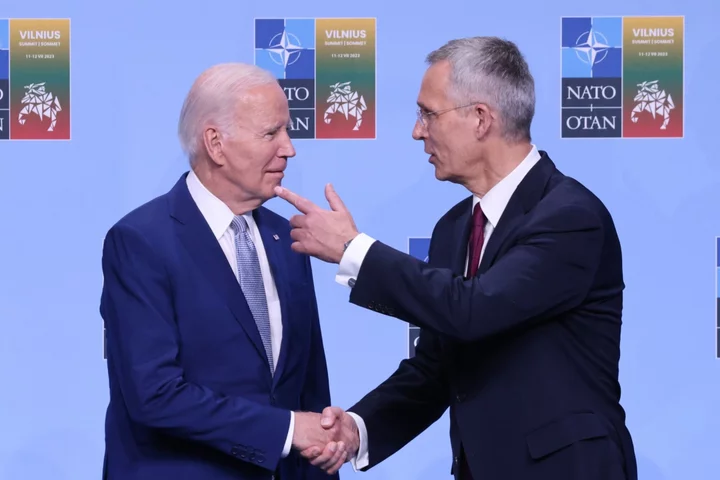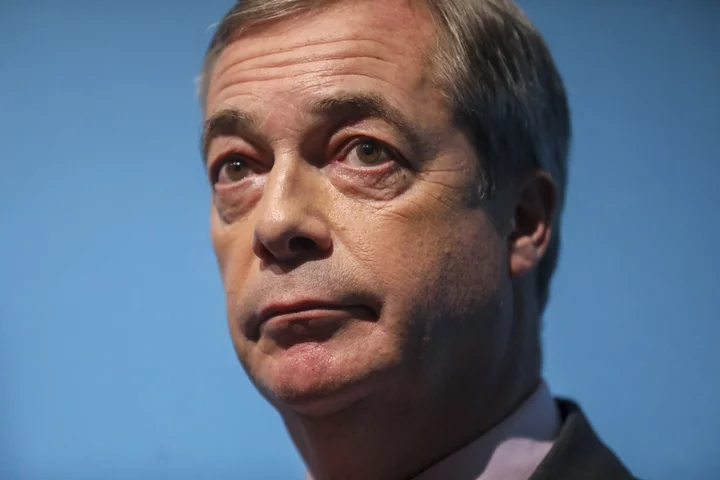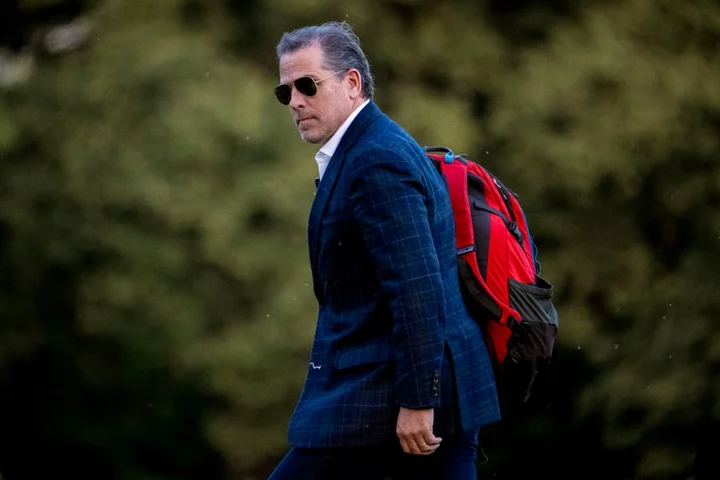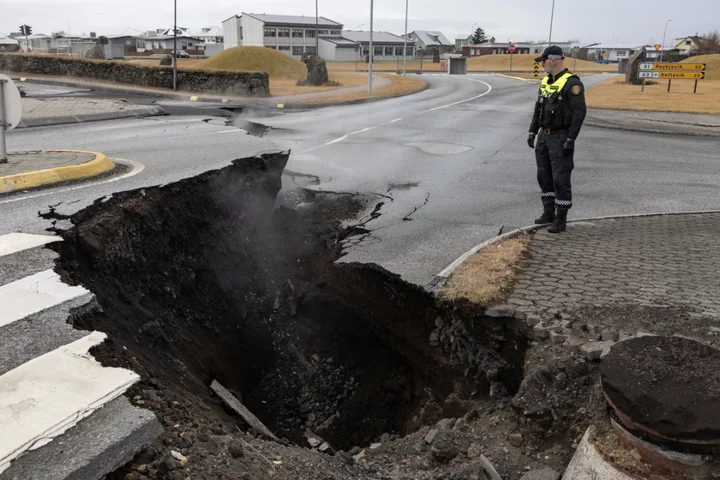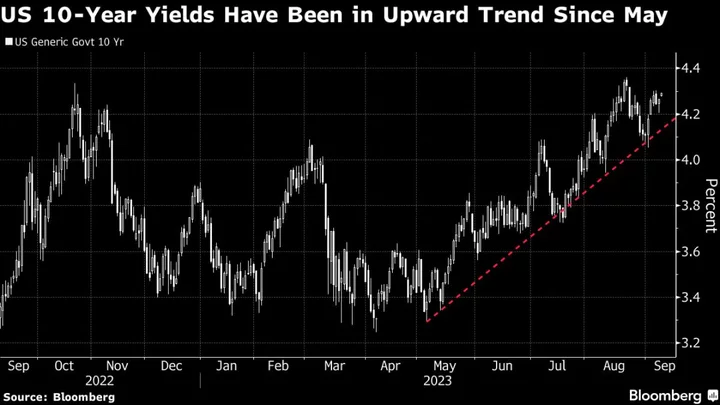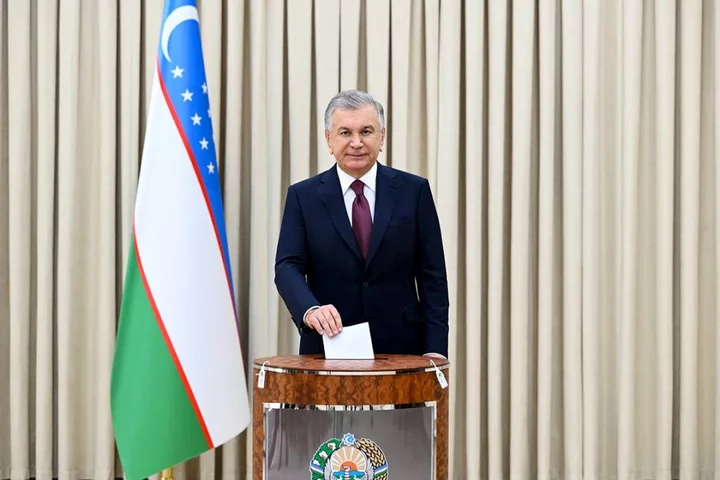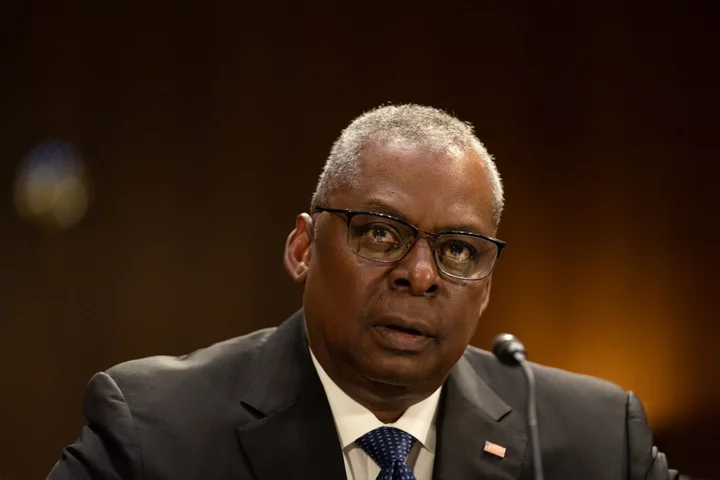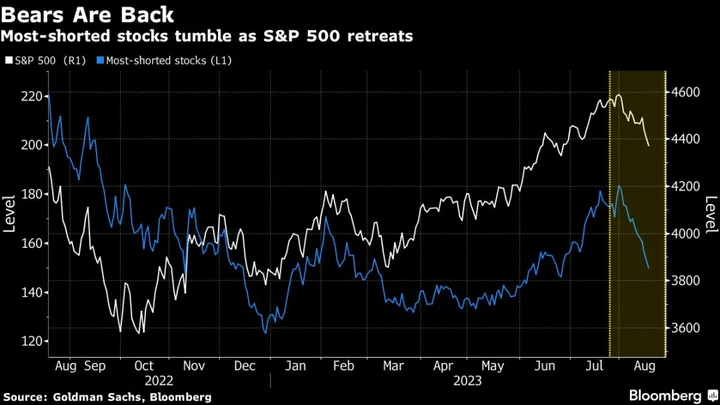President Joe Biden will cast the NATO summit as a successful result of his global engagement, arguing in a capstone address Wednesday that diligent diplomacy and US aid strengthened security for Ukraine and its allies after Russia’s invasion.
For Biden, it’s a case that serves dual purposes: offering a rallying cry for world leaders as the grueling economic and human toll of Russia’s war grows and validating his reelection pitch as a seasoned foreign-policy hand uniquely able to unite a fractured world.
Biden’s pitch was bolstered by Turkey’s historic agreement to support Sweden’s membership in the alliance, validating the president’s patience through a contentious ascension process.
And while Volodymyr Zelenskiy presaged his arrival at the summit with a furious tweet bemoaning the alliance’s slow-walking of his country’s membership request, he was set to join Biden and other Group of Seven leaders Wednesday afternoon for a ceremony celebrating a new package of aid and long-term security guarantees.
As a result, Biden was readying a victory lap in what aides were describing as a major address from the campus of Vilnius University. The president intended to highlight “how the United States, along with our allies and partners, is supporting Ukraine, defending democratic values, and taking action to address global challenges,” National Security Adviser Jake Sullivan told reporters.
Still, Biden’s ability to convince other leaders — and voters — that his achievements are sustainable will be crucial to the future of the conflict in Ukraine and his political standing.
2024 Shadow
Biden’s reelection campaign was never far from mind in Vilnius.
Turkish President Recep Tayyip Erdogan lifted his opposition to Sweden’s membership as Biden pledged increased military cooperation and reiterated support for the sale of US-made F-16 fighter jets to Ankara. During a meeting Tuesday, Erdogan joked they would need five years to complete the “new process” they were launching and wished Biden luck in the election.
“Thank you very much,” Biden responded with a grin. “I look forward to meeting with you the next five years.”
Earlier: Turkey Agrees to Back Sweden’s NATO Bid in Boost to Alliance
Republican presidential candidates are already seizing on wariness over the cost of the war, arguing they could reduce the cost to taxpayers or better influence Russian President Vladimir Putin. A record-high 44% of Republicans and GOP-leaning independents say the US is giving too much aid to Ukraine, according to a Pew Research survey released last month.
Unlike Biden’s economic agenda, which he spent the weeks ahead of the summit promoting in fundraisers and thinly-veiled campaign-style speeches across the US, his approach to the war remains largely popular among both his base and swing voters. A plurality of Americans surveyed by Pew approved of the administration’s response to the war and believed the US was providing the right amount of aid.
Aides indicated Biden’s speech would at least tacitly draw contrasts with Republicans vying to replace him, depicting the summit’s successful outcomes as a testament to his foreign-policy approach.
“He has devoted significant time — dozens, if not hundreds, of hours over the past two and a half years — to restoring America’s place on the world stage,” Sullivan said, leaving unsaid the implied contrast with former President Donald Trump, a Republican presidential candidate.
And Biden will seek to tie the accomplishments of the alliance to more tangible issues back home, including “expanding opportunities so we build an economy where no one gets left behind,” Amanda Sloat, the National Security Council’s senior director for Europe, told reporters on Wednesday.
“The president will talk about how the widespread support for Ukraine is reflective of the value of our alliances and partnerships, which he has revitalized since taking office,” Sloat said. “He’ll underscore how we have an opportunity at this moment to apply the same unity and sense of purpose and urgency to addressing the other great challenges of our time.”
Biden’s success at the summit was not assured. Leaders arrived in Vilnius amid worries that frictions, including Turkey’s long-stalled bid to join the European Union, Kyiv’s passionate desire to be under the umbrella of NATO’s Article V protections, and humanitarian concerns over US plans to provide Ukraine cluster munitions, could fracture a fragile transatlantic alliance.
Read more: Europe Can’t Supply Ukraine With Weapons Fast Enough, Here’s Why
Fresh commitments to Kyiv, including a €700 million ($770 million) package from Germany that includes battle tanks and Patriot missile launchers, have failed to assuage concerns about a growing ammunition deficit that could threaten Kyiv’s ongoing counteroffensive.
And while White House aides said they believed they had balanced Ukraine’s desire for a concrete plan for NATO membership against practical and pragmatic concerns about corruption and military interoperability, much of the attention during the final day of the summit was focused on Zelenskiy, and the question of whether he would again criticize the alliance for foot-dragging.
Still, as the summit progressed, even Republican lawmakers on the ground in Vilnius described it as a signal of strength to Putin.
“The narrative that shouldn’t come out of here, if people are paying attention, is that somehow NATO is divided,” Senator Thom Tillis, a North Carolina Republican, told reporters Tuesday. “We’re unified in our support for Ukraine.”

